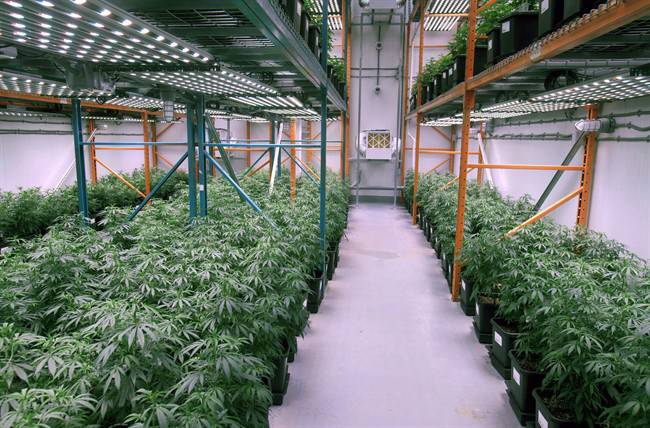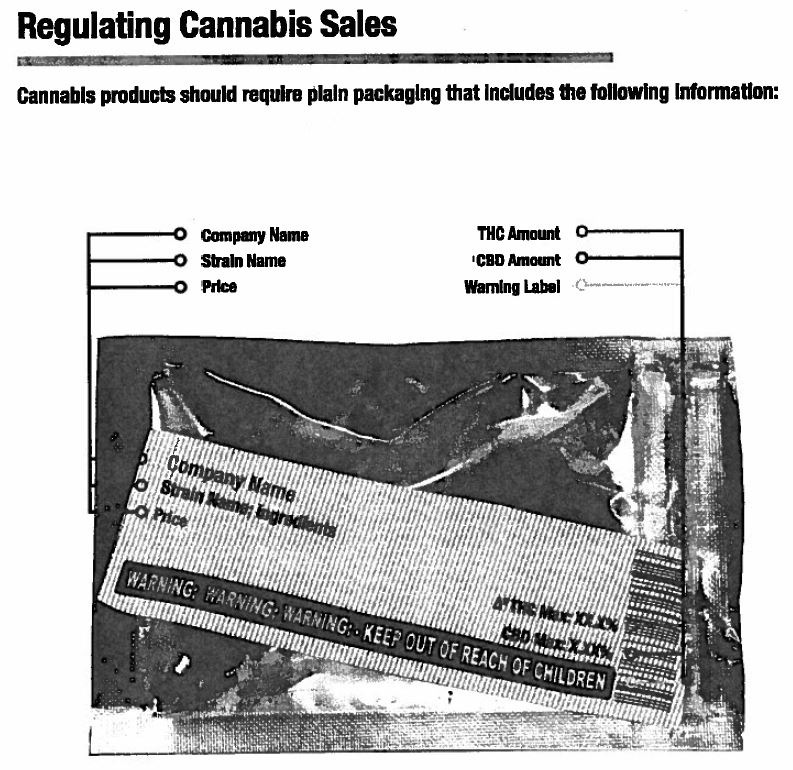Without private cannabis companies and proper branding, the Ontario government’s plan to roll out the sale of marijuana won’t be able to compete with the current black market, advocates say.

The current plan includes plain packaging, which wouldn’t allow for a new user to get relevant information, along with LCBO-run stores, which could be few and far between.
WATCH: New rules regarding sale of pot in Ontario announced
%20SEPT%2008%20STILL00000000.jpg?w=1040&quality=70&strip=all)
That’s led some producers to worry that users will continue to go to illegal dealers to get their pot.
Dispensaries “on notice”
Dispensaries and cannabis market experts shot back over the past month, saying that turning away from a privatized retail model represents a “missed opportunity” for Ontario.
Rosalie Wyonch, an analyst with the C.D. Howe Institute echoes these claims.
“I see the choice to go with only Crown corporation retail as a missed opportunity because, in Ontario, there are a significant number of dispensaries already running,” said Wyonch.
WATCH: Alberta’s plan for legal marijuana

“All the dispensaries that did open were operating illegally, but these were businesses that saw an opportunity and would have greatly benefited from private retail.”
The announcement came a warning to the dispensaries currently running that their time is almost up.
“If you operate one of these facilities, consider yourself on notice,” said Attorney General Yasir Naqvi.
But Wyonch thinks the best value and experience for the public “involves not making those first movers criminals, but making them successful business people.”
In addition to the concerns of dispensary owners, producers are concerned about whether this plan will quell the black market as legislators had hoped.
Maxim Zavet, president of Emblem Cannabis, explained that while those working in the cannabis space were consulted by the provincial government, he doesn’t feel as if their concerns were heard.
“The overwhelming message to the government is that there has to be some private retail in order to achieve the government’s perspective of curbing the illegal market,” Zavet told Global News.
He went on to say that because of the expected pricing at $10 per gram, and the lack of variety in the products offered by LCBO-run stores, regular cannabis users are more likely to continue getting their products on the black market, where they always have.
WATCH: Lock-and-key cannabis legislation receiving criticism

“It really will depend on how it rolls out. It will take longer to tackle or put a dent in the black market given the proposed distribution,” Zavet said.

Get breaking National news
“The amount of stores is not going to be enough, it’s not going to be convenient for people. There’s still going to be a lot of product in the grey area that people are not licensed to grow and not licensed to distribute.”
Marketing recreational pot
Producers go on to argue that the approach taken to sell recreational cannabis will determine how the product is packaged for sale; whether it be more like alcohol, sold attractively but with some social controls, or in a plain package with a few bare facts on the label.
“It is a bit of a proxy for the debate about legalization itself,” says Cam Battley of Aurora Cannabis, an Alberta-based medical marijuana producer.
LISTEN: Cam Battley joins Kelly Cutrara on AM640
Aurora is one of a number of marijuana producers who released a paper this week calling for moderately restrictive marketing rules for recreational pot, much like those for alcohol.
WATCH: Premier and ministers answer question: Have you consumed cannabis?

The federal Liberals have said that the main goal of recreational legalization is eliminating the black market. However, Ontario’s government-run stores won’t allow self-service, for example. People who didn’t use cannabis under prohibition won’t have a way of developing consumer preferences under legalization, he says.
Battley argues that won’t work if legal marijuana retail stores are so grim, unattractive and few and far between that nobody wants to use them.
“We have to allow the legal industry to compete effectively with the black market,” Battley argues. “To me, that means that we have to brand and promote our product.”
Under the producers’ proposed rules, marketing would only promote brand preference, not try to sell non-users to start, not be aimed at minors, or “associate cannabis with driving or any skilled activity.” It could, however, “promote a brand’s or strain’s flavour and taste.”
“Somebody who doesn’t have a lot of knowledge with respect to cannabis could walk in and say ‘I’d like to buy some cannabis,'” said Battley.
“And the person behind the counter will say ‘Sure, what would you like?’ ‘Well, I don’t know, what do you have?’ ‘I can’t tell you that.’ ‘Well, can I look at some products?’ ‘No.’ ‘Can I smell some products?’ ‘No.’ ‘Can you tell me anything about these products?’ ‘No, you have to tell me what you want.’
“It could be like a Monty Python skit.”
WATCH: Funding has been provided to police for cannabis sobriety testing

Ontario’s commission studying cannabis legalization got a range of submissions on the advertising issue.
The Canadian Mental Health Association (CMHA) wanted “restrictions … similar to the restrictions on tobacco products.”
They advocated “strict advertising regulations and limitations for the cannabis industry, as we believe that public health interests must take precedence over the interests of the cannabis industry.”
WATCH: Some Manitobans worry province is falling behind on cannabis plan for July 2018

Restrictions should “minimize the profile and attractiveness of cannabis products.”
The CMHA included a version of what legal pot packaged for sale should ideally look like:
Ontario Public Health Association and the Centre for Addiction and Mental Health called for “plain packaging,” while the Lung Association advocated “plain and standardized packaging.”
Tilray’s parent company, Privateer Holdings, on the other hand, argued that it is “critical to allow professional companies to differentiate themselves from black market producers through branding and responsible marketing practices … it is critical that licensed producers be empowered to push back against Canada’s thriving illegal market through branding and education.”
Spirits Canada (the Canadian distillers’ trade association) and the city of Brampton argued that marketing should be similar to alcohol.
The federal task force studying recreational legalization recommended a restrictive approach to marijuana marketing, modeled on the rules for tobacco.
Ontario was one of the first provinces to put forth a plan for selling and distributing recreational marijuana, which involves opening up to 150 stores across the province by 2020 to be operated by the LCBO.
This was preceded by the release of a set of advertising guidelines for cannabis products by sixteen of Canada’s licensed marijuana producers, prepared with the help of Advertising Standards Canada.
Documents were released to Global News under access-to-information laws.









Comments
Want to discuss? Please read our Commenting Policy first.